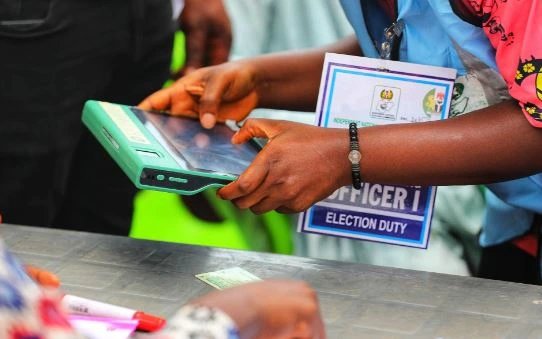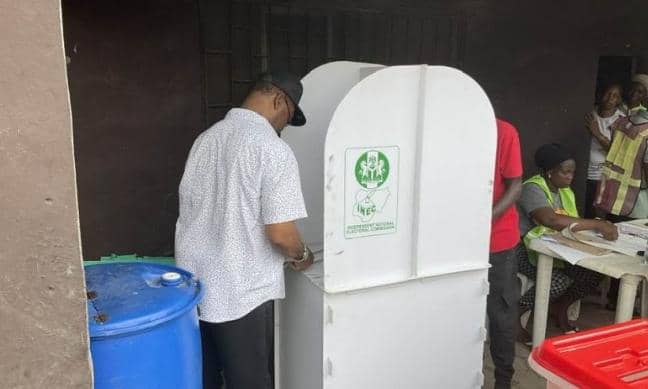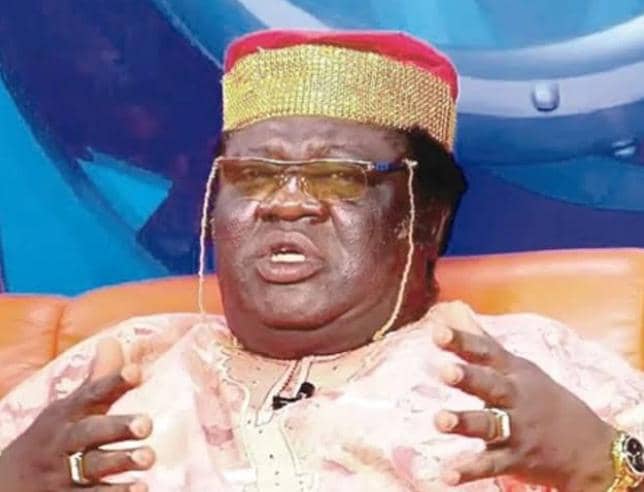Economy
CBN reports $6.83 billion payments surplus, indicating economic recovery
Central Bank of Nigeria (CBN) announced a $6.83 billion balance of payments surplus for 2024, signaling economic resurgence.
This marks a sharp turnaround from prior deficits, reflecting successful reforms and trade growth.
Acting Director Sidi-Ali Hakama shared the news via the CBN’s Twitter handle, highlighting restored investor confidence and macroeconomic stability.
A stronger trade balance, resilient remittances, and financial inflows drove the surplus.
Petroleum imports dropped 23%, while gas exports soared 48%, boosting the $13.17 billion goods trade surplus.
Non-oil exports also rose 25%, showcasing diversified economic progress.
Remittances surged by 9%, reaching $20.93 billion. Moreover, IMTO inflows skyrocketed, increasing by $444.73 billion during this period.
Meanwhile, foreign aid increased 6%, further stabilizing external finances. These inflows strengthened household incomes and national reserves.
Financial account improvements led to a significant net asset gain of $12.12 billion. Additionally, portfolio investments doubled during this period.
5.41 billion, reflecting trust in policy reforms.
Nigeria’s reserves climbed 6billion40.19 billion, cushioning the economy against shocks.
Additionally, net errors narrowed 80%, signaling better data accuracy and fiscal transparency.
The CBN credits unified exchange rates, disciplined monetary policies, and inflation control for this turnaround.
Coordinated fiscal measures enhanced competitiveness, attracting both local and global investors.
The CBN Governor emphasized, “This surplus proves our policies work, benefiting investors, businesses, and citizens.”
The reforms stabilized the naira, curbed import reliance, and spurred export diversification.
Business leaders praised the progress, noting easier access to forex and reduced market volatility.
Exporters celebrated higher non-oil earnings, particularly in agriculture and manufacturing sectors.
Critics, however, urge caution, citing lingering inflation and unemployment challenges.
They stress the need for inclusive growth to sustain momentum and address poverty gaps.
Global analysts now view Nigeria as a rising investment hub, with bonds and equities gaining traction. The surplus signals readiness to repay debts and fund critical infrastructure projects.
Households feel the shift through stabilized prices and improved access to imported goods. Parents report fewer school fee hikes, while traders enjoy predictable exchange rates.
Youth employment programs, funded by increased reserves, aim to harness demographic dividends.
Tech startups also benefit from easier foreign partnerships and funding access.
Environmental advocates call for green investments, noting gas export gains. They urge channeling surplus funds into renewable energy to align with global sustainability goals.
Opposition lawmakers demand accountability, questioning how surplus funds will tackle healthcare and education gaps. Civil society groups echo this, urging transparent allocation processes.
Economists predict sustained growth if reforms continue, especially in tax collection and anti-corruption efforts.
They warn against complacency, noting global oil price risks.
Farmers, however, celebrate higher non-oil export revenues, with cocoa and sesame sales rising. “This surplus reflects our hard work,” said a Kebbi rice producer.
Tourism operators report renewed interest from international visitors, citing eased visa policies and currency stability. Hotel bookings in Lagos and Abuja have surged.
Ultimately, Nigeria’s surplus symbolizes a resilient economy rebounding from years of strain. Strategic reforms and global partnerships now pave the way for inclusive, long-term prosperity.
For Diaspora Digital Media Updates click on Whatsapp, or Telegram. For eyewitness accounts/ reports/ articles, write to: citizenreports@diasporadigitalmedia.com. Follow us on X (Fomerly Twitter) or Facebook












